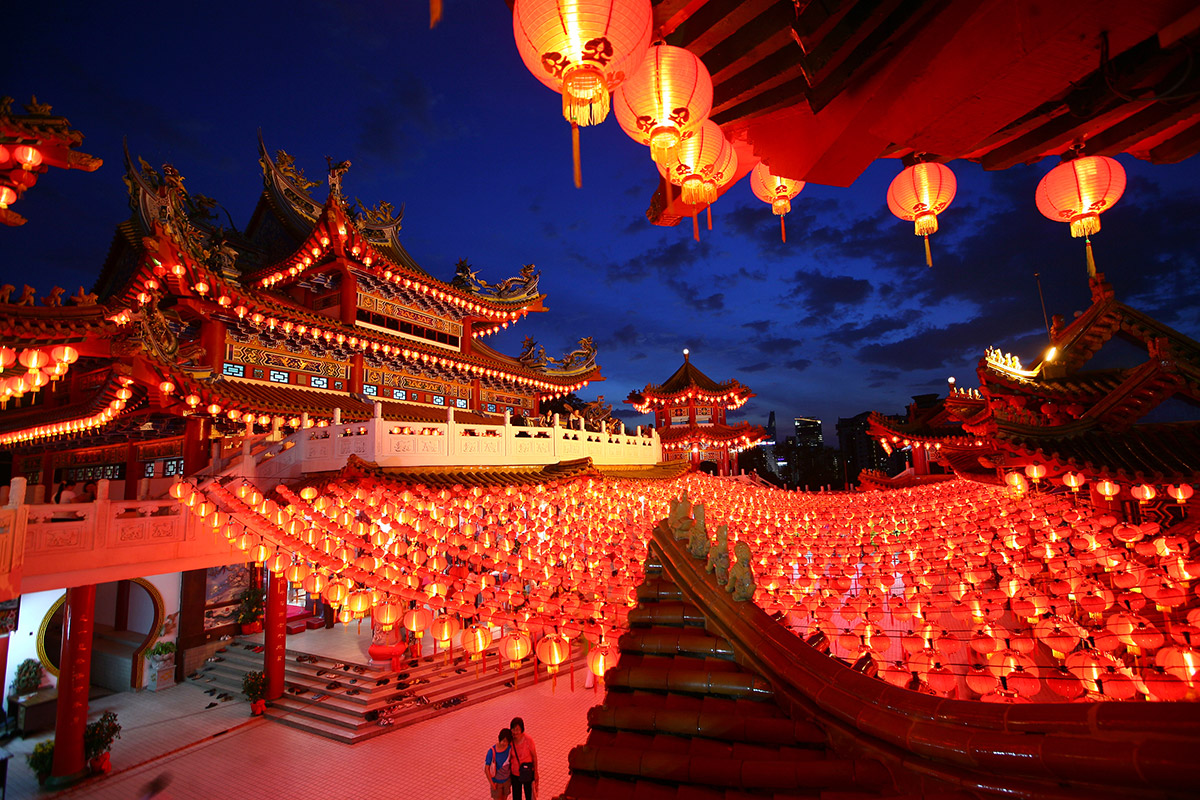As promised, I've got a special holiday post for you today. It'll be a little shorter than intended, because I've injured my wrist and typing is rather painful at the moment. Still, I'll do my best to give this wonderful festival the post it deserves.
(An important note before I begin – the Lunar New Year is celebrated in a number of countries, including Taiwan, Malaysia, and Tibet. However, since I'm beginning my series of posts on Chinese mythology next week, and since Chinese celebrations of the Lunar New Year are what I'm most familiar with, I'm going to be focusing on that this post.)
Let's start with the Little New Year.
One of the most important deities in China is the Kitchen God. This god is one of the oldest in Chinese mythology, and so has been worshiped under many names. Nearly every house has a shrine to him in their kitchen. He serves a purpose much like the Greek Hestia, for the Kitchen God watches over the family from his hearth, which is regarded as the center of the home. The stove is regarded as the Kitchen God's dwelling.
The Kitchen God has a very special responsibility. Throughout the lunar year he observes the family from his stove. Then, on the night of Little New Year, he travels to heaven to report on the family to the Jade Emperor – the greatest god in China. Offerings are made to the Kitchen God before he goes on his journey. In reality, these offerings are often bribes. Honey and wine are given to him to sweeten his tongue, in the hopes that his words will be kinder than the truth. If a family worries that this may not be enough, more drastic measures are taken. Sticky, gooey foods are offered to the Kitchen God before his departure, which serve to glue his mouth shut. When he is asked by the Jade Emperor how his family has acted throughout the year, all he can do is nod.
Firecrackers are lit off during Little New Year to speed the Kitchen God on his way to heaven. These fireworks are a common theme throughout the Chinese New Year. They are set off during all three stages of the festivity. Part of the reason for this is that fireworks make a lot of noise, and both light and loud noises are supposed to help ward off evil spirits.
There are a lot of traditions in the celebration of the Chinese New Year. I'd like to briefly talk about three:
The Gate Gods are often hung as paintings on the panels of front doors during the Chinese New Year. They are protectors of mankind and are viewed as guardians of the home. These dual gods have many stories revolving around them, but the most popular is as follows. The Gate Gods are said to be two famous Chinese soldiers from the Tang dynasty. During that time period there was an emperor who was plagued by demons during his sleep. Hearing of this, two brave soldiers volunteered to stand guard outside the emperor's bedchamber, so that no demons could possibly disturb him while he slept. The demons were so afraid of the soldiers that they never saw them, and the emperor was able to sleep peacefully for the first time in weeks. He ordered likenesses of the soldiers to be painted and hung outside his bedchamber, allowing the soldiers to return to their duties...and the emperor to continue to be protected.
The Chinese New Year is a time for paying off one's debts. There are three festivals in China which include debt-paying as part of their traditions. During the Chinese New Year, debt-paying allows one to literally start the New Year with a clean slate.
Lastly, birthdays! While some families choose to celebrate birthdays on the day a child was born, much of China celebrates during the Chinese New Year. Every New Year, everyone in China becomes a year older. All birthdays are celebrated on the same day.
Beginning with the Little New Year, the Chinese New Year ends with the Lantern Festival. The Lantern Festival has a number of festivities that are unique to it, though it continues the trend of fireworks, feasting, and the color red (which is considered lucky) that its two counterparts share.
Part of the celebration of the Lantern Festival, as you might have guessed from its name, includes decorating with and lighting lanterns. You know the scene from Tangled, where the entire kingdom lets loose a lantern into the sky? It's absolutely gorgeous, but I've always found the Chinese Lantern Festival even more breathtaking.
Often confused by Westerners, the Lantern Festival is also when both the Dragon Parade and the Lion Dance take place. The Dragon Parade is lengthy – one of my source books makes mention of a Dragon Parade in San Francisco that stretched 160 feet long. The dragon is made of brightly colored cloth and held up by wooden rods. Men carry it throughout the streets, their movements making it appear to flow and glide.
In contrast, the Lion Dance is composed of only two people. One wears the front half of a lion suit, the other its rear.
Why these two animals? The lion is not native to China, but animals were sometimes sent to emperors as gifts from the Persians. Given its association with the emperor, the lion was regarded as an animal of protection. Dragons in China are associated with water, often streams and rivers. It is also tied to rain. The Chinese New Year marks the end of winter and the beginning of spring, and so the dragon represents the coming of spring showers.
Chinese New Year is this Saturday.
Happy Year of the Rooster, everyone!
I'll be back next week to begin my
Intro to Chinese Mythology!






No comments:
Post a Comment